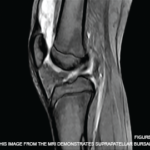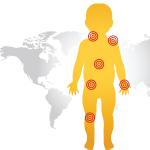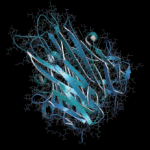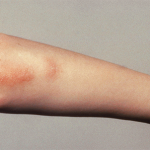In a study from Ramanan et al., baricitinib proved safe and effective for reducing the time to flare and frequency of flare in patients aged 2–18 years with juvenile idiopathic arthritis.


In a study from Ramanan et al., baricitinib proved safe and effective for reducing the time to flare and frequency of flare in patients aged 2–18 years with juvenile idiopathic arthritis.

Eman Bamashmous, MBBS, Buthaina Al Adba, MBBS, CABP, & Sharon Bout-Tabaku, MD, MSCE |
Intra-articular venous malformations of the knee are an uncommon cause of knee pain in children. Presenting symptoms of this rare subtype of venous malformation often include nonspecific pain and joint swelling, which may be episodic, and accompanied by limited range of motion. The signs and symptoms can mimic juvenile idiopathic arthritis (JIA). Timely diagnosis of…

CHICAGO—The treatment of patients with juvenile idiopathic arthritis (JIA) is historically directed by clinical subtype. During a session at the 2018 ACR/ARHP Annual Meeting, speakers addressed the biological classification and treatment of JIA, discussing draft guidelines and recommendations, the impact of computer modeling on identifying JIA subtypes and subgroups of chronic arthritis. Guidelines & Recommendations…

Carina Stanton |
A stroll through downtown Stockholm presents a quintessential picture of an active community, with most people biking or walking as their preferred mode of travel. Yet children in Sweden who live with juvenile idiopathic arthritis (JIA)—currently estimated at around 64 of every 100,000—don’t always engage in this active lifestyle.1 Maura Daly Iversen, PT, DPT, SD,…

Catherine I. Morlino |
After having had juvenile idiopathic arthritis (JIA) for 20 years, I had a moment in my journey when I realized something new: “Your arthritis doesn’t just affect you, you know,” my sister said. This statement stopped me in my achy tracks. For two decades, I had been operating under the assumption that JIA was my…

WASHINGTON, D.C.—Researchers have identified nine new genetic loci linked with juvenile idiopathic arthritis (JIA), along with evidence that at least some of them likely play a functional role, such as cytokine signaling and T cell expression. The findings were presented in an abstract session at the 2016 ACR/ARHP Annual Meeting, which also included a presentation…

WASHINGTON, D.C.—Juvenile idiopathic arthritis (JIA) patients taking TNF inhibitors don’t develop new cancers at a higher rate than JIA patients who don’t take TNF inhibitors, according to the largest study so far conducted to study the possible link. The findings were reported at the 2016 ACR/ARHP Annual Meeting in an abstract session that also included…

Although most systemic juvenile idiopathic arthritis patients don’t develop macrophage activation syndrome (MAS), the approximately 10% who do have this serious complication can experience widespread, massive inflammation, debilitating symptoms and even death. To improve understanding of MAS among physicians and advance efforts to develop effective therapies to treat it, a panel of 28 international pediatric…

One parent wishes that she could have consulted a crystal ball at the beginning of her daughter’s illness to have “some kind of idea of what we were in for. There are so many stages of letting go of the idea of what your little kid is in for in life, what they are going…
Boris Hugle, MD, MSc, Laura Mueller & Thierry Levade, MD, PhD |
A case study reveals how late presentation of this rare, autosomal-recessive disorder, which can involve arthritis-like symptoms, can be mistaken for JIA